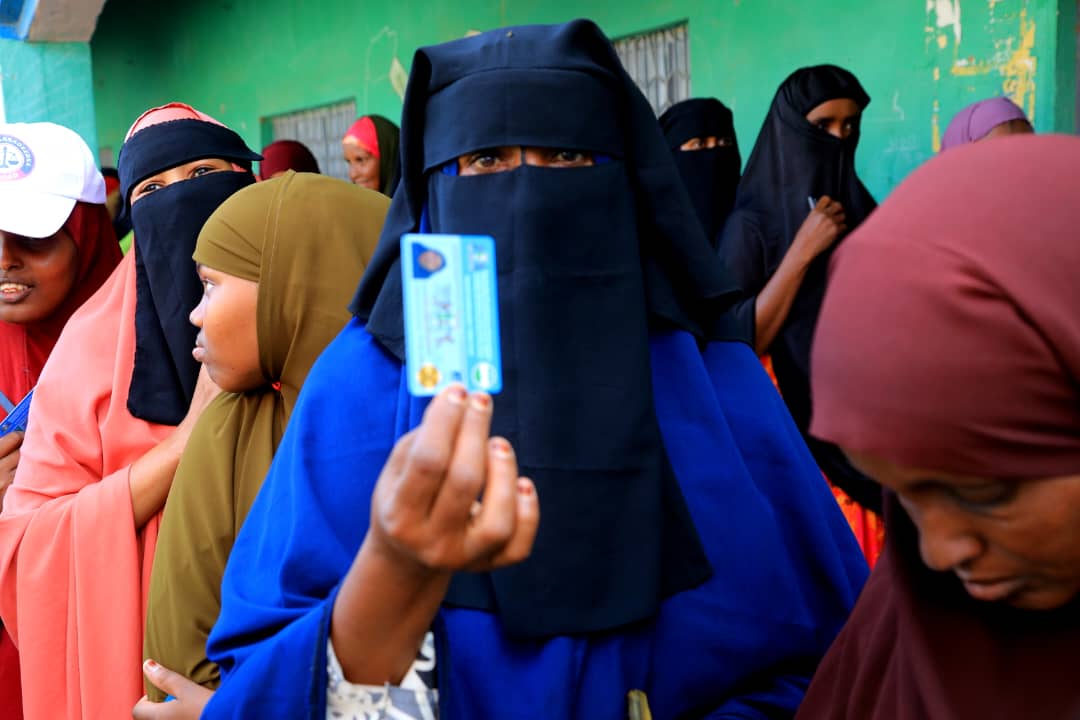GAROWE (KAAB TV) – Khadro Mohamed Hassan, a woman of many ambitions, was born in Mogadishu and grew up in Garowe. She is the daughter of a successful medical doctor, and despite coming from a family with traditional values, her passion for politics was unwavering.
After graduating from secondary school in 2007, Khadro did not give up her dream of entering politics, even though her friends, family, and supportive husband believed that politics in Somalia was a male-dominated field where women should not interfere.
After completing her university studies abroad, Khadro returned to Somalia and began working in the health sector.
“I studied mother and child care, and I started working to improve the conditions of women and children suffering from acute malnutrition,” she explained during a sit-down interview with Kaab TV in Garowe.
Testing Her Potential
In 2023, as Puntland began preparations for elections, with the regional government’s term nearing its end, Khadro saw her chance to step into politics. Initially, a direct vote was announced, but violence in Garowe led to its cancellation in May that year.
Still, Khadro was determined to test her abilities and seized the political opportunity.
“My motivation came from the needs of the local population. The needs of my community, drove me. I hope I can fix the needs of the population by 30 percent,” she said.
However, to run as a candidate, she needed the endorsement of her clan elder, as Puntland’s government announced that clan elders would select the 66 MPs who would, in turn, elect the regional president for a five-year term.
When she approached her clan elder, Khadro was met with disappointment.
“My clan elder didn’t want me to run, simply because I am a woman. He chose a male candidate instead,” she told Kaab TV.
Somali politics operates through a clan system where male elders play a crucial role in selecting leaders.

These elders often view men as the protectors of the clan’s honor, resources, and security, reinforcing the belief that male candidates are better suited for leadership roles. Women, especially those married into other clans, like Khadro, are seen as outsiders and thus less eligible for leadership positions.
“That is Somali culture, rooted in patriarchy—the belief that men are more beneficial than women in the society,” Khadro said.
Another reason elders resist women in politics is the fear that increased female participation could challenge the existing power structures, potentially reducing their influence.
A Breakthrough Opportunity
Khadro’s determination, however, paid off when Puntland resumed its one-person, one-vote local council elections for 36 districts, including Garowe in mid 2024. She took the opportunity to run for a council seat in her hometown.
As soon as her candidacy became public in the Horseed neighborhood of Garowe, she received overwhelming support from both the youth and women.
“Both men and women backed me. People were queuing to vote by 5 a.m. on election day, [July 23rd],” she recalled.
Running under the Runcad party, which was viewed as an opposition group, Khadro faced again challenges and some were even concerned that candidates of government-owned party may overtake the Horseed neighbourhood seat.
“We were knocking on doors, sometimes until midnight,” she said. “But I am grateful to the people of Horseed who supported us.”
Khadro’s campaign focused on security, health, sanitation, and education, priorities that resonated with the local community, particularly women and youth.
In a surprising victory, the Runcad party secured 1,431 votes, winning two seats in Garowe city alone, according to the Puntland Electoral Commission. Khadro was among the 33 councilors elected to the city council.
“Our campaign was like the wave of the sea. No one could stop us. We overcame the challenges,” she proudly told Kaab TV.
The Financial Struggles of Female Candidates
In Somalia’s political landscape, including Puntland, men occupy the majority of seats in both federal and regional governments. Clan elders, who play a significant role in candidate selection, often favor male candidates who can afford to offer financial incentives—something many women, like Khadro, cannot do.
Despite her success, Khadro knows that many women face significant financial hurdles when running for office.
“If you can’t afford to pay for the food and drinks for your campaign volunteers or hire a car or a meeting hall, it’s hard to run a campaign against wealthy male candidates,” she explained.
Even with these challenges, Khadro’s victory stands as an inspiring example of how determination and community support can overcome deeply rooted barriers.

